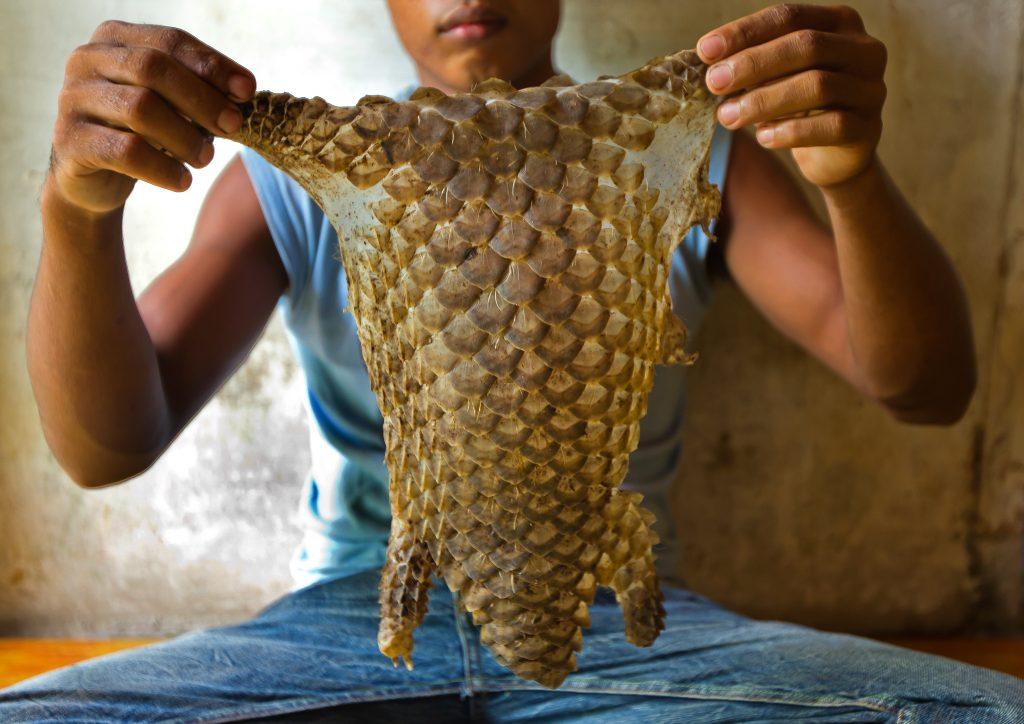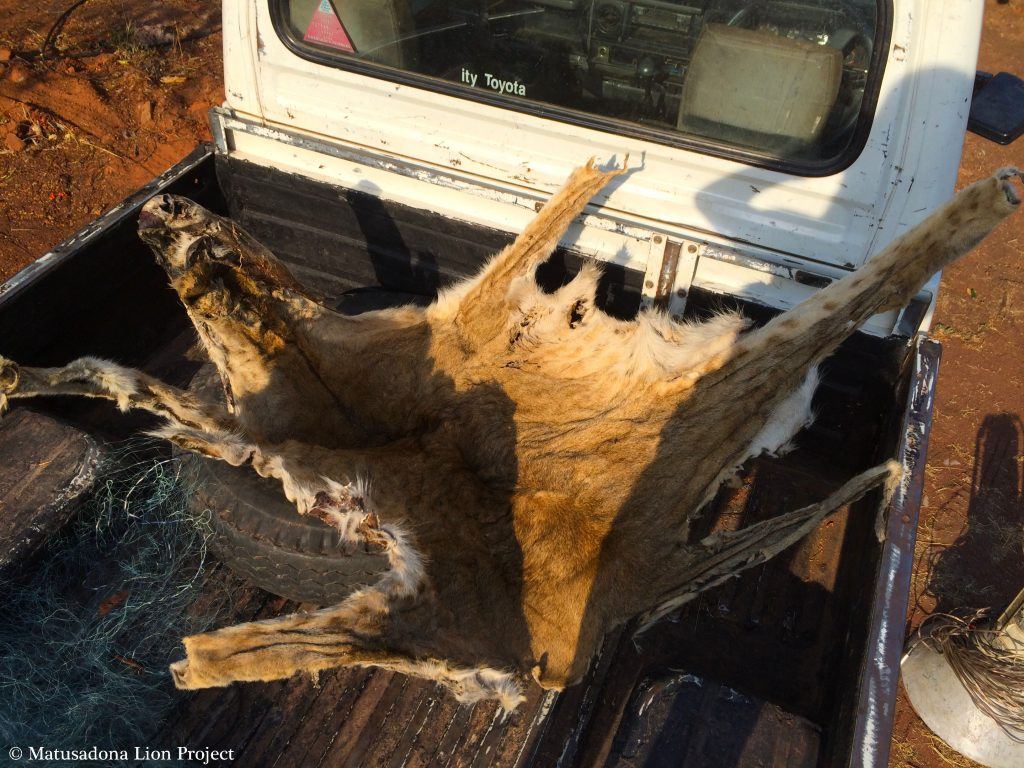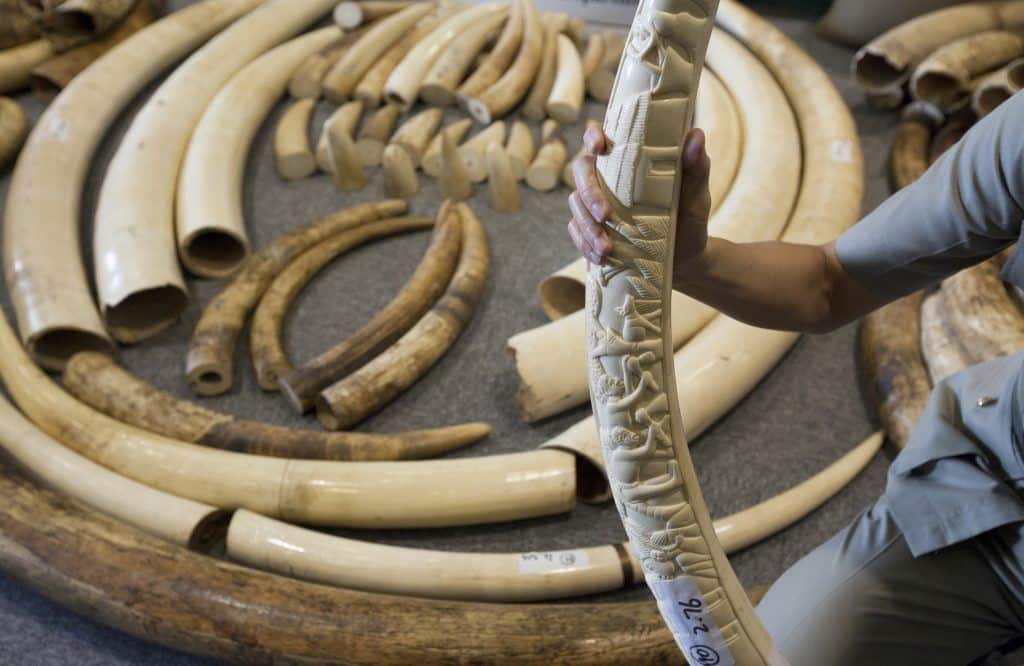The coronavirus (COVID-19) pandemic has altered all of our lives, and illustrates how disruptive and tragic viral outbreaks can be. COVID-19 is just the latest example of a zoonotic disease that likely stemmed from wildlife trafficking. Scientists suspect that COVID-19 was transferred from animals to humans in a wildlife wet market in Wuhan, China. Ordinarily these wild animals pose no health risk to people, but the cramped conditions and regular contact with humans in these markets is what makes the spillover of these diseases possible. These wet markets are often stocked through illegal poaching, and create the conditions necessary to spread diseases that can spark pandemics with global shockwaves.
But the global response to COVID-19 leaves us hopeful for the future of both people and wildlife. China, where many of these wet markets are found, recently announced a ban on wildlife trade and consumption in response to this outbreak. Vietnam is also moving to halt illegal wildlife trade and consumption. These are promising steps forward in a region where the demand for wildlife products is high, and reduced demand will ideally lead to decreased poaching, trafficking, and consumption, and increased protection of endangered species, like pangolins, in the wild.
WCN’s Conservation Partners and Crisis and Recovery Fund grantees are also continuing to safeguard endangered wildlife around the world. We hope the reaction to the COVID-19 crisis will raise global awareness and resources to bolster our ability to fight the illegal wildlife trade that led to the origin of this pandemic.
To start, the Pangolin Crisis Fund (PCF) is supporting innovative projects that target wildlife traffickers, such as the training of African giant pouched rats to detect hidden pangolin shipments. PCF is funding investigations into the illegal pangolin trade between Africa and Asia and gathering intelligence to help government agencies enact effective laws against these criminal groups. PCF also supports WildAid in its efforts to reduce the demand for illegal wildlife products in Asia. To continue this vital work, WCN is investing $1 million dollars through the PCF in a grant to WildAid to tackle wildlife trade and consumption in Asia.
The Lion Recovery Fund (LRF) backs projects that train sniffer dogs to track down wildlife products at checkpoints along Zambia’s major highways, and perform broader analysis of the lion body part trade throughout Tanzania and Mozambique. The poaching of lion body parts is emerging as a serious threat, so the LRF is providing grants to conduct covert investigations that identify the source of the demand, the key perpetrators, and weak points in the trade that can be exploited. LRF grantees also work to reduce the demand for bushmeat, which threatens lions and other wildlife throughout Zambia and Malawi.
The Elephant Crisis Fund (ECF) supports projects that use smart, integrated approaches to anti-poaching. Some ECF grantees collaborate with PCF grantees, since ivory and pangolin scales are often found in the same shipments, with the hope of increasing numbers of high level arrests and convictions of wildlife traffickers. This disrupts global trafficking networks and helps cripple ivory shipment routes. In Asia, lobbying by ECF grantees is informing policy change by governments and shifting perceptions of the illegal wildlife trade. Undercover operations are often employed by ECF grantees to take down criminal syndicates and close illegal ivory markets in both Africa and Asia.
WCN’s Conservation Partners go to great lengths to combat the illegal wildlife trade and dismantle poaching traps. Niassa Lion Project is fervently working with authorities in Mozambique to address the rising trade in lion body parts. In 2019, rangers and volunteers from Painted Dog Conservation and Okapi Conservation Project removed a combined 4,200+ wire snares meant to capture and kill wildlife. Cheetah Conservation Fund rescued 44 cheetahs from traffickers last year, and are building a new facility to rehabilitate additional rescued cheetahs. The Saiga Conservation Alliance supported a 2019 CITES effort to impose a zero export quota on saiga horns, effectively prohibiting international commercial trade in wild saigas. These are just a few of the recent successes our Partners have achieved in their mission to save wildlife.
As we have seen with COVID-19, international trafficking of wild animals can lead to the spread of new pathogens that can cripple our global society. To prevent future wildlife-related pandemics like the current coronavirus crisis, we need to strengthen wildlife protections, reduce the demand for wildlife parts and products, and dismantle the infrastructure that allows the illegal wildlife trade to function. WCN’s Partners and Fund grantees are doing their part on behalf of wildlife, and with your continued support of their work, we can be hopeful for a safer, healthier future for us all.




